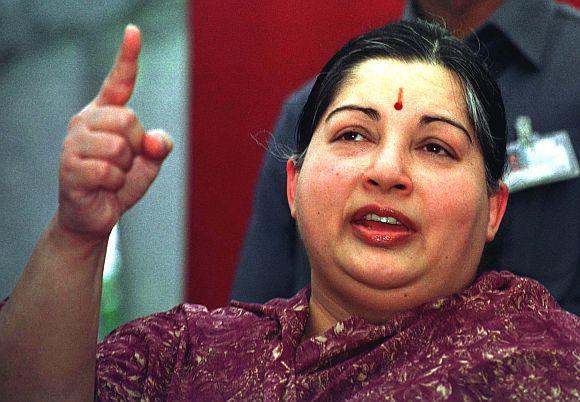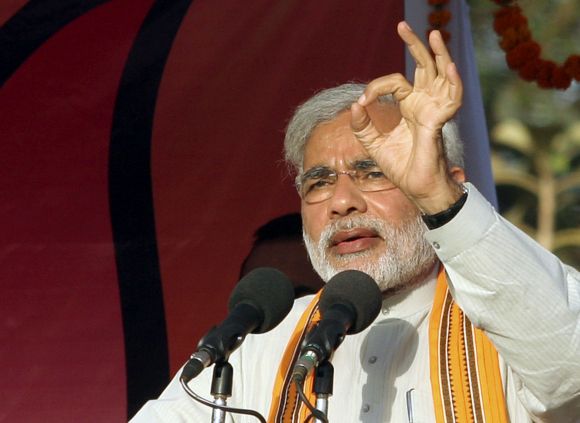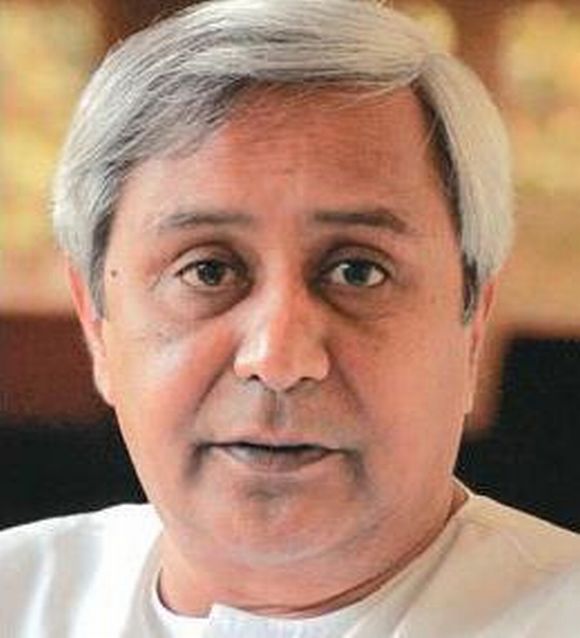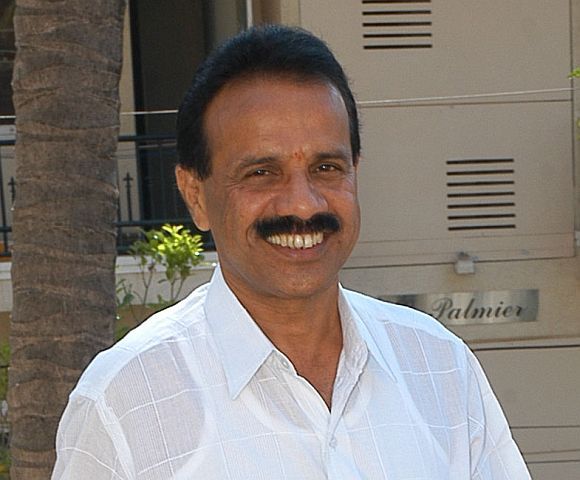 | « Back to article | Print this article |
Non-Cong CMs tear into Centre over internal security
Chief ministers of non-Congress states on Monday accused the Centre of not consulting states on key security issues wherein the state's powers are "abrogated" while United Progressive Alliance ally Trinamool Congress opposed National Centre for Counter Terrorism as it "upsets" the federal structure.
Speaking at the meeting of the chief ministers on internal security convened by the Union home ministry, Chief Ministers of Tamil Nadu and Gujarat J Jayalalithaa and Narendra Modi opposed Centre's move to set up the NCTC.
In her speech, Jayalalithaa hit out at the Centre for "encroaching on state powers" through the NCTC which was in "contravention" to constitutional provisions that accord priority status to police in the state list.
"Lack of consultation with the states and failure to take the states into confidence is a cogent commentary on the system of governance in the Centre," she said.
Click NEXT to read further...
'Centre trying to create a state within state'
Modi said Centre was adopting a "non-consultative" approach with state governments on key security issues.
He said Centre was creating a "state within a state" by considering changes to RPF Act and BSF Act which take away powers from the state police and meddling with subjects under the state list.
On the matter of NCTC, West Bengal Chief Minister Mamata Banerjee said that "it upsets the federal structure of the country. I have already written to you (Prime Minister Manmohan Singh) on the matter and will elaborate my views at length and in detail at the separate meeting being convened (on May 5)."
Chhattisgarh Chief Minister Raman Singh said issue of the establishment of NCTC requires a national consensus as "it must not adversely affect our federal structure."
'Lack of Central assistance posing difficulties for states'
Odisha Chief Minister Naveen Patnaik, who had earlier questioned the Centre's move to go ahead with a sensitive matter concerning terrorism without taking the states into confidence, hoped the issue of consultations with the states scheduled for May 5 is addressed seriously.
He said Maoists were trying to open new fronts on the Odisha-Chhatisgarh border by expanding activities to bordering districts and that lack of assistance from the Centre was posing difficulties for the state.
Madhya Pradesh Chief Minister Shivraj Singh Chouhan also criticised the centre for not consulting the states before taking crucial decisions on national security.
"It is being increasingly felt that, the state governments are not being consulted before the formulation of the policies and making of new laws, rather the prepared drafts are sent for their comments. A prime example is major amendments in the UAP Act," he said.
Chouhan said while it is understood that during the policy formulations and law making process there is indirect participation of the people at large but in the process states are being neglected.
"Often draft proposals are being formulated by interest groups, non-governmental organisations and others," he said.
'Moves like NCTC will erode the power of the states'
Karnataka Chief Minister Sadananda Gowda said the police, and law and order are state subjects under the Constitution and any direct entry into those areas by the Union government through such devices as the NCTC would encroach into the very federal arrangements and erode the powers of the states.
Gowda said, "The past experience seems to indicate the occasional misuse of criminal laws and central police establishments as well as para-military forces for political gains against the opposition-ruled states. There is no reason to suspect that the proposed arrangement in the NCTC will be an exception to it."
Bihar Chief Minister Nitish Kumar also expressed concerns over proposed NCTC saying he has asked for consultations to be held with the states to address their concerns on the anti-terror body.
"Although, a meeting was held in March at the level of officials, it served little purpose and we are not aware of any positive outcome of that meeting. In any case, the core issue being violation of the principle of federalism, the only level at which meaningful discussion could be held is between heads of government at the Centre and States," he said.
Tripura Chief Minister Manik Sarkar said in recent past the home ministry has taken several steps which have serious implications for the federal structure of the country and encroachment on the rights of the state.
"The notification of the NCTC, proposed amendment of the RPF Act and BSF Act has caused serious apprehensions among the states," he said adding that he would like to reserve his detailed views for the proposed meeting of chief ministers on the issue next month.
TOP photo features of the week
Click on MORE to see another set of PHOTO features...




